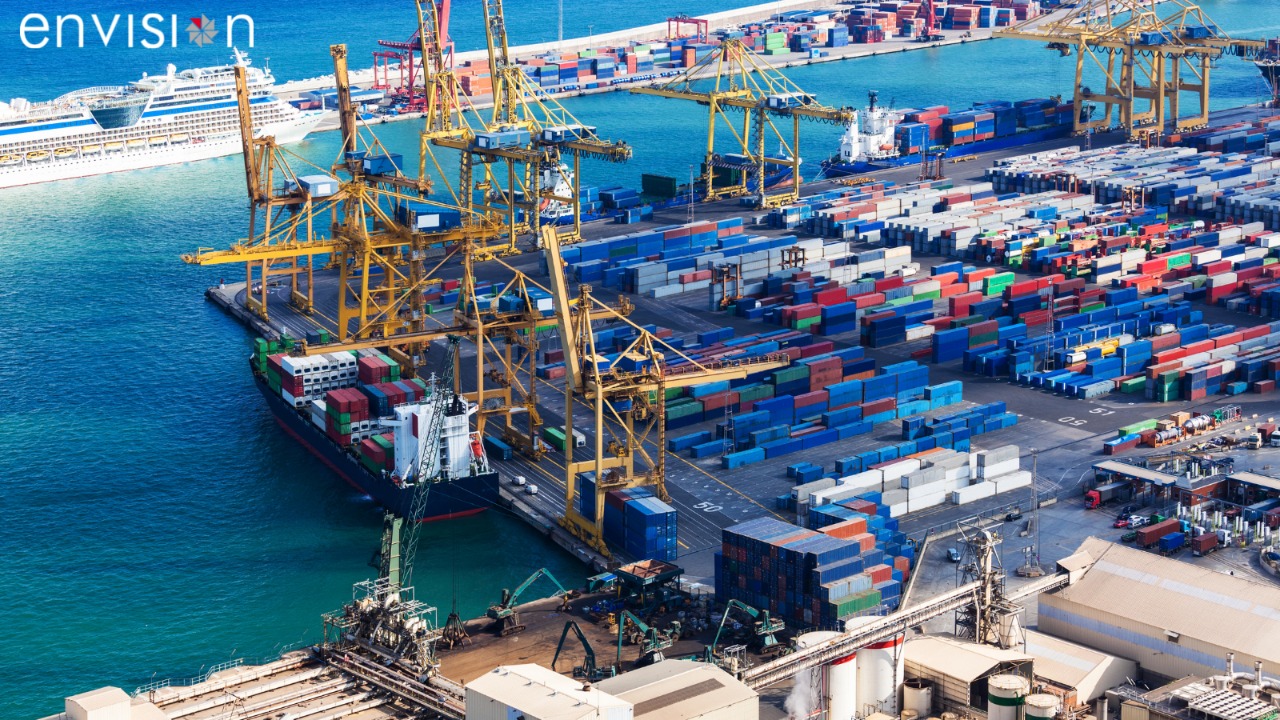Envision
The Pivotal Role of Customer Portals in Modern Seaports

Seaports serve as key nerve centers in the dynamic and interconnected world of maritime trade, enabling the flow of commodities and resources on an unprecedented scale. Seaports are not immune to the digital transformation that is sweeping across many industries. Customer Portals - online systems meant to improve service delivery, communication, and overall efficiency - are a critical component of this shift.
Customer Portals' Role in Seaports:
A Customer Portal is a secure internet portal through which clients and businesses may engage easily. It is critical in seaports, delivering a wide range of benefits such as increased customer service, operational efficiency, and real-time communication.
Better Customer Experience:
A Customer Portal is about enhancing service to customers. It enables shippers, freight forwarders, and logistics providers to better organize their logistics operations by providing them with 24/7 access to critical information such as shipping schedules, cargo tracking, and document handling. These portals also serve as a repository for service requests, complaints, and comments, resulting in a more seamless customer support experience.
Operational Efficiency:
Time is money in the realm of marine trade. Traditional communication and operational methods might cause delays and inefficiencies. Many regular processes, such as cargo booking, document verification, and payment processing, are automated using a Customer Portal. This automation not only lowers human errors but also allows employees to focus on more strategic activities, enhancing overall operational efficiency.
Transparency and real-time communication:
Delays and uncertainty in a global supply chain can have a cascading effect. As a result, real-time data is critical. Seaports can employ Customer Portals to deliver real-time updates on cargo movements, customs clearances, and potential interruptions. This transparency allows customers to better manage their supply chains and builds trust in the port's services.
Data-Driven Decisions:
Client portals are also a great source of data, revealing information about client behavior, service consumption, and operational bottlenecks. Seaports may make more educated decisions, improve their services, and uncover potential for improvement by harnessing this data.
The Next Generation of Customer Portals in Seaports:
The potential of Customer Portals at seaports is boundless with the emergence of modern technologies such as AI, IoT, and blockchain. These technologies could enable analytical forecasting for better cargo management, end-to-end supply chain visibility, and enhanced security via encrypted transactions.
The Customer Portal is an important component that is changing the way seaports operate and connect with their customers. It ushers in a slew of improvements in terms of providing a better customer experience, increasing operational efficiency, increasing transparency, and allowing seaports to make data-driven decisions. As digital technologies advance, the role of Customer Portals in seaports will become even more critical in charting the path to a future of seamless and efficient marine trade.
Talk to us today to know how our solutions can accelerate your digital transformation
Let's Talk

































